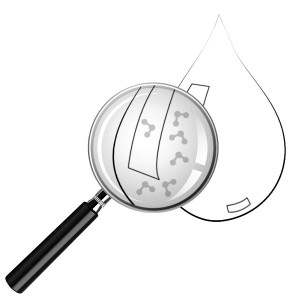While Grinnell is situated in the heartland of one of America’s top farming states, the impact of farming on our lakes and streams is not something most students think about on a day-to-day basis.
Grinnellians seeking to engage in environmental conservation causes oftentimes search far and wide looking for a suitable cause to support. However, those that search closer to home will find that water monitoring group “Iowater” is engaging in such efforts right here on campus.
Iowater is a statewide volunteer-based water monitoring program dedicated to teaching residents the skills necessary to conduct basic biological, physical and chemical measurements. Spearheaded by Tayler Chicoine ‘14, a Grinnell chapter has recently sprung up to encourage Grinnellians to play a larger role in water conservation and management efforts.
Chicoine’s interest began with prior research and a summer internship her second year.
“I was a National Resources Conservation Service [NRCS] intern two years ago and I got in contact with Mindy Seek, who’s the head of the Iowater chapter here at Grinnell,” Chicoine said. “I also looked at watershed awareness as part of a [Mentored Advanced Project] and organized my findings into a presentation.”
Eventually, Chicoine’s work morphed into an effort to make something with a longer-lasting impact at Grinnell. Chicoine noted the importance of getting one’s hands dirty, rather than just sitting in a classroom and taking lecture notes.
“You can only teach so much conservation,” Chicoine said. “We give people the skills to actually make a difference.”
The difference that Iowater seeks to make is a complex and long-term one. Volunteers take an eight-hour long training session, which prepares them with the skills to understand and measure many important stream health standards. There are tests for levels of phosphorous and nitrate amongst other criteria such as stream depth and substrate calculations.
While it may be helpful to have a background in biology or chemistry, anyone who is interested is more than welcome to attend.
“We’ve got fourth-years to first-years,” Chicoine said. “A background in biology may be helpful, but we teach you everything you need to know in the training, so it’s not a problem if you don’t.”
Due to Iowa’s largely agricultural make-up, these biological levels fluctuate rapidly between seasons and areas.
Iowater’s mission is to ensure that fertilizer and other chemicals are not impairing biodiversity or stream growth.
Grinnell’s Iowater chapter works closely with many other groups, on campus and in the community, to further their efforts and increase awareness regarding the importance of clean and sustainable watersheds.
“In the springtime, we will be involved with [Grinnell Outdoor Recreation Program], working together to clean up lakes and streams,” Chicoine said. “In addition, we’re closely affiliated with ‘Imagine Grinnell,’ which is a local organization which works to increase the level of environmental sustainability at Grinnell and Poweshiek County.”
Some projects that Grinnell Iowater has undertaken are neighborhood storm drain labeling and providing informational brochures around school and in town.
“I’ve petitioned for a NRCS mini-grant, which will give us the money necessary to label storm drains and provide more brochures,” Chicoine said. “We really have the potential to grow, especially in our efforts and size.”
Iowater is one of many student organizations working to advance Grinnell’s commitment to social justice.
“Grinnell is all about connecting conservation and the community,” Chicoine said. “Iowater is a great way to do so.”
For interested students, the next training session will be held in Noyce on Saturday, Oct. 5, from 8:30 a.m. to 4:30 p.m. Lunch will be provided.



















































